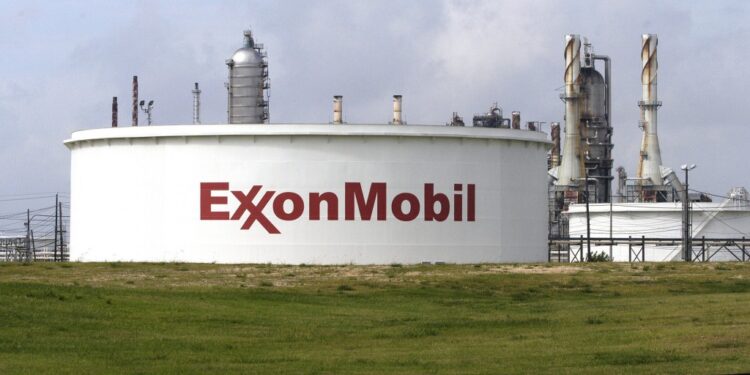In a landmark move expected to reshape the energy landscape, Exxon Mobil is set to announce its acquisition of U.S. rival Pioneer Natural Resources for approximately $60 billion. The deal, which remains confidential, positions Exxon as the leading player in the largest U.S. oilfield, securing a decade of low-cost production, according to sources familiar with the matter.
While the details of the deal are yet to be officially disclosed, insiders have revealed that Exxon, valued at $442 billion as of Tuesday, is preparing a pure stock offer valued at over $250 per share for Pioneer. On the cusp of this development, Pioneer’s shares, closing at $237.41 on Tuesday, experienced a 2.7% surge to $244 in premarket trading, while Exxon’s shares displayed a slight decline.
If the deal proceeds as anticipated, it would stand as the largest acquisition in 2023 and the most significant move for Exxon since its $81 billion purchase of Mobil Oil in 1998.
Both Exxon and Pioneer have refrained from making official comments on the “market speculation” surrounding the transaction.
The acquisition will consolidate the influence of four major U.S. oil companies over the Permian Basin shale field and its extensive oilfield infrastructure. Despite the expectation of rigorous scrutiny, antitrust experts, as noted last week, believe that Exxon and Pioneer hold a strong chance of gaining approval for the deal, as their combined presence will represent a small fraction of the vast global market for oil and gas.
Exxon’s strategic decision to retain its focus on conventional oil amid growing climate concerns has been a point of controversy. However, this approach paid dividends last year when the company reported a record profit of $56 billion, following massive losses of $22 billion during the COVID-19 pandemic. Analysts suggest that Exxon had prepared for major deals by reserving around $30 billion in cash, fueled by substantial profits from the surge in oil prices due to the Russia-Ukraine conflict.
Pioneer Natural Resources, on the other hand, has been one of the shale revolution’s notable success stories, helping the United States transition from a major oil importer to the world’s leading oil producer in just over a decade. As the third-largest oil producer in the Permian Basin, Pioneer boasts remarkably low production costs averaging around $10.50 per barrel of oil and gas.
Under the leadership of CEO Scott Sheffield, Pioneer’s growth has been driven by a series of significant acquisitions, including the multimillion-dollar deals in 2021 for DoublePoint Energy and Parsley Energy.
Exxon’s planned acquisition of Pioneer Natural Resources is expected to surpass Royal Dutch Shell’s $53 billion purchase of BG Group in 2016, which established Shell as a dominant player in the global liquefied natural gas market.
The move comes after Exxon’s July agreement to acquire Denbury Inc. in an all-stock deal valued at $4.9 billion, aimed at bolstering Exxon’s emerging low-carbon business. The energy giant initially proposed an all-cash bid for Denbury but transitioned to an all-stock offer, adapting to changing market dynamics and investor sentiment.
Exxon’s stock price has rebounded vigorously since its 2020 dip to approximately $30 per share when oil and gas prices plummeted, with the shares recently hitting an all-time high of $120 per share.









